





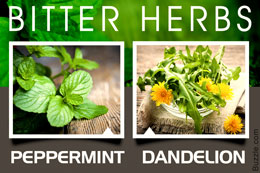 Did You Know?Angelica has been used as a medicinal herb for several years. But it was also believed that adding the flowers to the ritual bath would break bad spells and keep away all the evil spirits.There are several reasons why herbs may taste bitter. Some of them contain a bitter volatile oil, while others contain certain phytonutrients, viz., glucopyranosides, flavonoids, and polyphenols, that lead to bitterness. Also, some herbs may be slightly bitter, while others are numbingly strong in their bitterness quotient. You will be surprised to know that herbs that bear a sweet fragrance such as chamomile, dandelion, mint, etc., are a part of the list of bitter herbs. In earlier times, these herbs were employed for healing purposes, in ceremonies, and during cooking too. Better known as 'bitters', these herbs are beneficial in alternative healing. These herbs can function as an astringent, a relaxer, toner, and as an internal cleanser. They are primarily employed to counter digestive problems and combat inflammation.
Did You Know?Angelica has been used as a medicinal herb for several years. But it was also believed that adding the flowers to the ritual bath would break bad spells and keep away all the evil spirits.There are several reasons why herbs may taste bitter. Some of them contain a bitter volatile oil, while others contain certain phytonutrients, viz., glucopyranosides, flavonoids, and polyphenols, that lead to bitterness. Also, some herbs may be slightly bitter, while others are numbingly strong in their bitterness quotient. You will be surprised to know that herbs that bear a sweet fragrance such as chamomile, dandelion, mint, etc., are a part of the list of bitter herbs. In earlier times, these herbs were employed for healing purposes, in ceremonies, and during cooking too. Better known as 'bitters', these herbs are beneficial in alternative healing. These herbs can function as an astringent, a relaxer, toner, and as an internal cleanser. They are primarily employed to counter digestive problems and combat inflammation.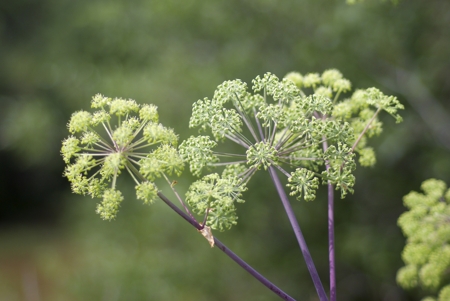 ChamomileChamomile (Matricaria chamomilla) is mildly bitter to taste although its flowers emit a sweet aroma. It is used as a sedative and also suppresses muscle spasms. It provides relief from fever and restlessness. It also helps relax the nerves and lessens anxiety.
ChamomileChamomile (Matricaria chamomilla) is mildly bitter to taste although its flowers emit a sweet aroma. It is used as a sedative and also suppresses muscle spasms. It provides relief from fever and restlessness. It also helps relax the nerves and lessens anxiety.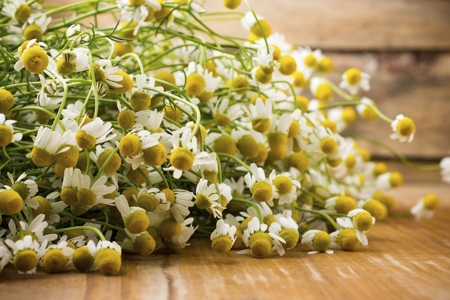 DandelionDandelion (Taraxacum) is mild in its bitterness quotient. Its properties make it a diuretic (helps in urine production) and blood purifier. This herb is also known to lower cholesterol and decrease blood pressure. In the Mediterranean region and parts of Asia, it finds a place in the traditional recipes.
DandelionDandelion (Taraxacum) is mild in its bitterness quotient. Its properties make it a diuretic (helps in urine production) and blood purifier. This herb is also known to lower cholesterol and decrease blood pressure. In the Mediterranean region and parts of Asia, it finds a place in the traditional recipes.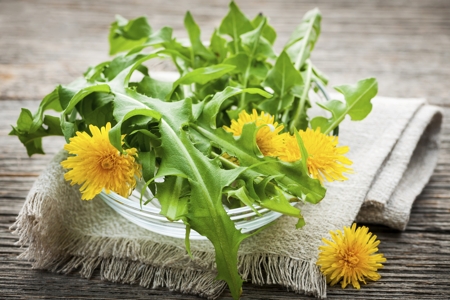 GoldensealGoldenseal (Hydrastis canadensis) is another herb that's known to be very bitter. In the book, Collections for an Essay Toward a Materia Medica of the United States (1804), Professor Benjamin Smith Barton states that the root of the plant is strongly bitter. The herb has a positive effect on the immune system; it helps in fighting infections. It cures cold and flu and reduces inflammation.
GoldensealGoldenseal (Hydrastis canadensis) is another herb that's known to be very bitter. In the book, Collections for an Essay Toward a Materia Medica of the United States (1804), Professor Benjamin Smith Barton states that the root of the plant is strongly bitter. The herb has a positive effect on the immune system; it helps in fighting infections. It cures cold and flu and reduces inflammation.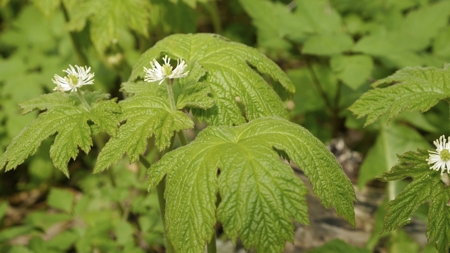 Milk ThistleMilk Thistle (Silybum marianum) is often used to treat liver problems like liver damage or poisoning. The other uses include preventing diabetes, malaria, and curing allergy problems or loss of appetite. The plant also has anti-inflammatory and antioxidant properties. Mainly, the seeds are said to be the most effective.
Milk ThistleMilk Thistle (Silybum marianum) is often used to treat liver problems like liver damage or poisoning. The other uses include preventing diabetes, malaria, and curing allergy problems or loss of appetite. The plant also has anti-inflammatory and antioxidant properties. Mainly, the seeds are said to be the most effective.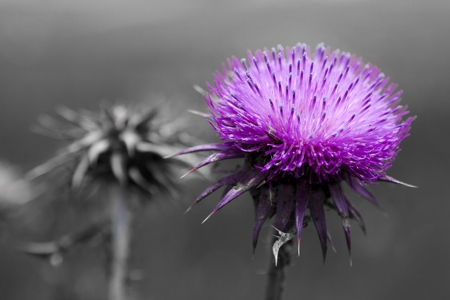 PeppermintPeppermint (Mentha piperita) is known for its flavor, fragrance, and medicinal properties. Roman naturalist Pliny the Elder had this to say about peppermint, "The very smell of it alone recovers and refreshes the spirit." Peppermint oil may reduce nausea and cure stomachache. The herb encourages bile secretion by the liver and gallbladder, and disinfects the stomach in case of imbalance in the gut flora.
PeppermintPeppermint (Mentha piperita) is known for its flavor, fragrance, and medicinal properties. Roman naturalist Pliny the Elder had this to say about peppermint, "The very smell of it alone recovers and refreshes the spirit." Peppermint oil may reduce nausea and cure stomachache. The herb encourages bile secretion by the liver and gallbladder, and disinfects the stomach in case of imbalance in the gut flora.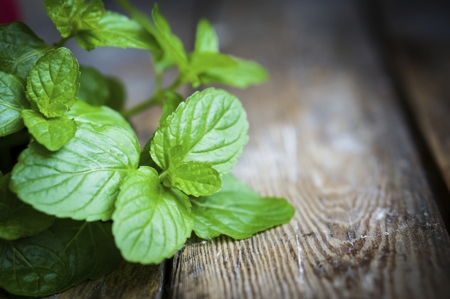 WormwoodWormwood (Artemisia absinthium) acts as an antiseptic, tonic, diuretic, and stomach toner. It is known for its anti-inflammatory properties and is hence used to fight infections. It is also used to stimulate blood flow, making it helpful in menstruation troubles. However, due to its extremely bitter taste, it should be consumed only under medical supervision. Its strong bitter taste is still employed in wines and spirits such as vermouth.
WormwoodWormwood (Artemisia absinthium) acts as an antiseptic, tonic, diuretic, and stomach toner. It is known for its anti-inflammatory properties and is hence used to fight infections. It is also used to stimulate blood flow, making it helpful in menstruation troubles. However, due to its extremely bitter taste, it should be consumed only under medical supervision. Its strong bitter taste is still employed in wines and spirits such as vermouth.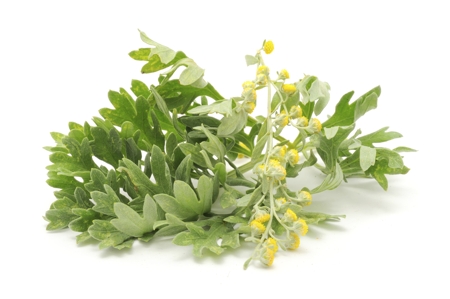 YarrowYarrow (Achillea millefolium), a flowering plant, produces a mildly bitter herb. This herb is used as an astringent and to cure cold. It also regulates the menstrual cycle, works as a natural diuretic, and aids respiratory disorders.
YarrowYarrow (Achillea millefolium), a flowering plant, produces a mildly bitter herb. This herb is used as an astringent and to cure cold. It also regulates the menstrual cycle, works as a natural diuretic, and aids respiratory disorders.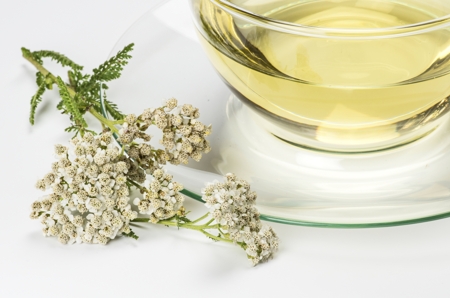 TansyTansy (Tanacetum vulgare), a flowering plant, is a bitter herb. It acts as a stimulant, stimulates blood flow in the pelvic area and uterus, thus helping the menstrual cycle, and is known to kill parasites that enter the stomach through food.
TansyTansy (Tanacetum vulgare), a flowering plant, is a bitter herb. It acts as a stimulant, stimulates blood flow in the pelvic area and uterus, thus helping the menstrual cycle, and is known to kill parasites that enter the stomach through food.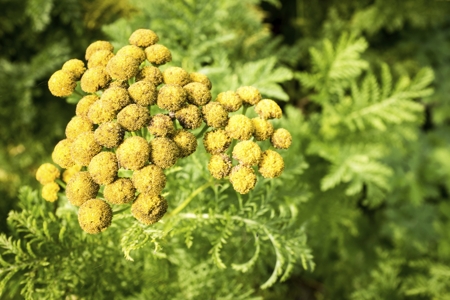 CentauryIn terms of bitterness, centaury (Centaurium erythraea) is very bitter because of which ancient Romans referred to it as 'bile of the earth'. Similar to chamomile, centaury too works on the nerves and reduces anxiousness. It also works as a digestive stimulant. It aids dyspepsia and any other condition where digestion is slow. Its properties make it an appetizer, diaphoretic (can increase sweating), digestive, emetic, and tonic, among others.
CentauryIn terms of bitterness, centaury (Centaurium erythraea) is very bitter because of which ancient Romans referred to it as 'bile of the earth'. Similar to chamomile, centaury too works on the nerves and reduces anxiousness. It also works as a digestive stimulant. It aids dyspepsia and any other condition where digestion is slow. Its properties make it an appetizer, diaphoretic (can increase sweating), digestive, emetic, and tonic, among others.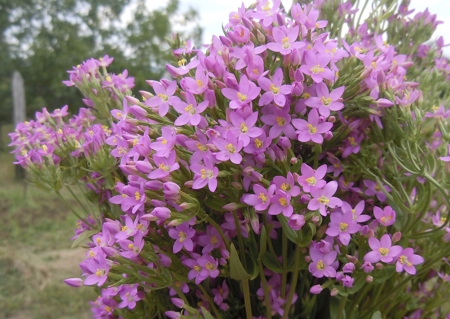 HopsHops is the female part of the flowering plant, hop (Humulus lupulus). It is used to reduce insomnia, tension, and restlessness. It also helps in indigestion and cancers like ovarian, prostate, and breast cancer. It has antibacterial properties and can be used for leg ulcers. Apart from medicine, it is used in oils and brewing beer.
HopsHops is the female part of the flowering plant, hop (Humulus lupulus). It is used to reduce insomnia, tension, and restlessness. It also helps in indigestion and cancers like ovarian, prostate, and breast cancer. It has antibacterial properties and can be used for leg ulcers. Apart from medicine, it is used in oils and brewing beer.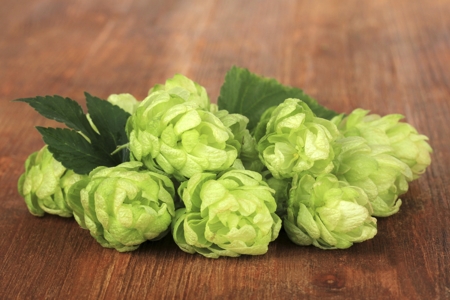 ChicoryChicory (Cichorium intybus), another bitter herb mentioned in the Bible, is known since ancient times to cure jaundice, treat fever, and reduce inflammation. It promotes milk flow in nursing mothers and reduces blood pressure. The root extracts act as a diuretic and laxative. It also has antibacterial properties and is slightly sedative.
ChicoryChicory (Cichorium intybus), another bitter herb mentioned in the Bible, is known since ancient times to cure jaundice, treat fever, and reduce inflammation. It promotes milk flow in nursing mothers and reduces blood pressure. The root extracts act as a diuretic and laxative. It also has antibacterial properties and is slightly sedative.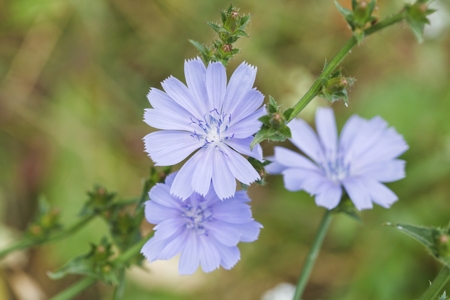 RueRue (Ruta graveolens) is a powerful bitter herb whose properties make it an antispasmodic, sedative, and a mild stomach toner. It finds a mention in the holy Bible as 'peganon'. It eases sciatica pain when bruised and applied. It is said to be beneficial in healing chronic bronchitis when applied on the chest and relieves headache.HorehoundHorehound (Marrubium vulgare) is another herb that has its mention in the Bible. Being a natural expectorant, it aids respiratory infections. It helps get rid of excess mucus from the airways and acts as a general tonic. It is present in cough syrups and throat lozenges.People who chew on these herbs may wish to know the aftertaste left in the mouth. A piece of licorice root does the trick here as it neutralizes the aftertaste. Also, please remember to consult your doctor before using these herbs as an alternative medicine.
RueRue (Ruta graveolens) is a powerful bitter herb whose properties make it an antispasmodic, sedative, and a mild stomach toner. It finds a mention in the holy Bible as 'peganon'. It eases sciatica pain when bruised and applied. It is said to be beneficial in healing chronic bronchitis when applied on the chest and relieves headache.HorehoundHorehound (Marrubium vulgare) is another herb that has its mention in the Bible. Being a natural expectorant, it aids respiratory infections. It helps get rid of excess mucus from the airways and acts as a general tonic. It is present in cough syrups and throat lozenges.People who chew on these herbs may wish to know the aftertaste left in the mouth. A piece of licorice root does the trick here as it neutralizes the aftertaste. Also, please remember to consult your doctor before using these herbs as an alternative medicine.
Copyright © www.100flowers.win Botanic Garden All Rights Reserved